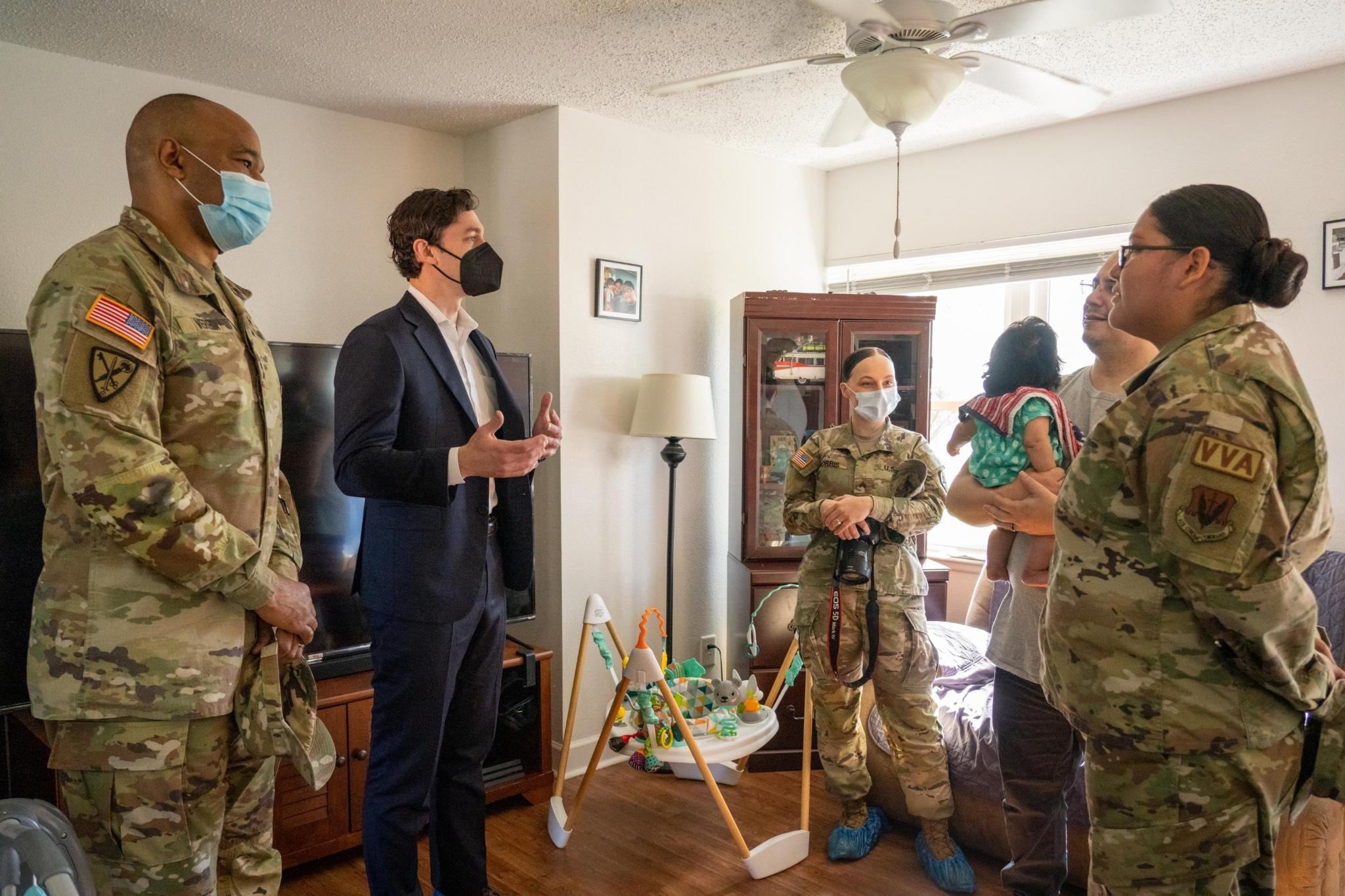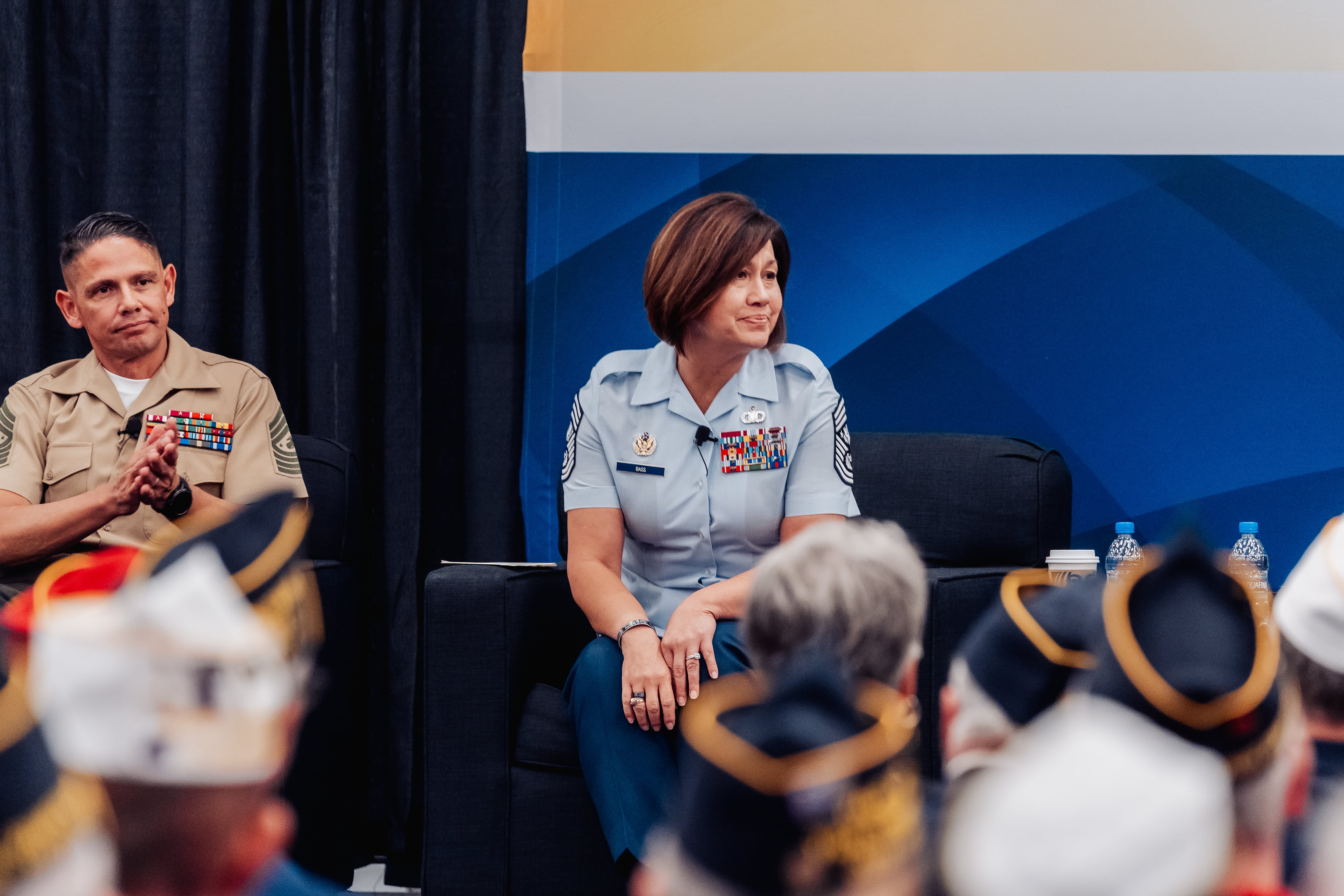CHARLOTTE, N.C. – American Legion members are headed back to military bases next month, but not to don their old service uniforms.
Instead, organization leaders are hoping to serve as military family advocates in a new way, discussing and amplifying concerns about quality-of-life shortfalls that could be hurting morale and creating distractions that could hurt readiness.
The organization earlier this year launched a new Base Assessment and Servicemember Experience (BASE) initiative designed to better understand problems such as housing shortfalls, medical service gaps and insufficient family support programs.
“Military quality-of-life issues have been in the news a lot, but it’s always in a negative or derogatory way,” said Mario Marquez, director of the Legion’s National Security Division. “And that can have a negative impact on recruitment. We don’t want it to be that way.
“This is designed to be similar to a commanding general going to a base and having a town hall. But we come in as a third-party that both sides know and trust.”
RELATED

The group has tracked the family issues in the past, but the new program formalizes the work and will include new base visits starting next month. The goal is to provide an outlet for rank-and-file personnel to voice complaints before they build into crises that could discourage recruiting and re-enlistment or harm families.
Defense Department leaders have already offered support and access to the program. The move comes as Congress has increased its focus on military family assistance in recent years, in the wake of a series of housing scandals and daycare complaints.
Advocates say those kinds of stories could make military recruiting and retention even more difficult than it already is.
Legion officials formally unveiled the program at their annual convention this week in North Carolina, kicking off the work with a roundtable of senior military leaders outlining their hopes for base improvements in coming years.
At that event, Chief Master Sergeant of the Air Force JoAnne Bass called child care “a readiness issue” and noted plans for a military-wide summit on the topic later this month. Army Sgt. Major Michael Perry III, who serves as senior enlisted leader to the Army Deputy Chief of Staff, told Legion members that his service plans $1 billion in spending over the next decade to improve soldiers’ housing options.
But the leaders also acknowledged that tracking all of the headaches and frustrations of military families is difficult, and praised the new Legion initiative as helping facilitate those conversations.
Marquez, who served 31 years in the Marine Corps, said staff carrying out the base visits will be veterans with first-hand understanding of military base life and the challenges that come with it. The research will include not just stateside bases but also overseas installations.
The American Legion plans to issue periodic reports on their findings, but will also rush potential problem points — and solutions from other bases — to local commanders in an effort to get fixes implemented as soon as possible.
“Let’s break any perceived tension or divide here,” he said. “It’s time for kneecap to kneecap conversations between commanders and folks on active duty, and the veterans community can do so much to help with that.”
Leo covers Congress, Veterans Affairs and the White House for Military Times. He has covered Washington, D.C. since 2004, focusing on military personnel and veterans policies. His work has earned numerous honors, including a 2009 Polk award, a 2010 National Headliner Award, the IAVA Leadership in Journalism award and the VFW News Media award.





